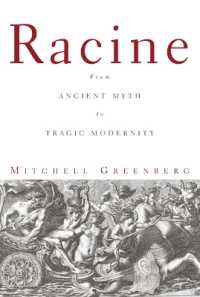Full Description
Cognitive and behavioural studies are making inroads into international law, international policy, and literature. Firstly, international practice is drawing increasingly on behavioural studies. The United Nations (UN) and its agencies have turned to behavioural science to confront new challenges faced by the international community, including the Sustainable Development Goals, climate change, and gender equality. Similarly, the World Bank and World Health Organization have created teams of experts to advise on the incorporation of behavioural insights to support their operations. Other international organizations are likewise following suit. Secondly, the cognitive-behavioural turn is generating innovative research work in disciplines neighbouring international law and is gaining similar traction in international legal scholarship.
Yet, despite this, the implications of cognitive-behavioural studies for international legal theory remain under-explored. With few exceptions, international legal theories have long failed to explicitly address the cognitive-behavioural assumptions of their respective theoretical approaches. To fill this gap, this book systematically examines the impact of the cognitive-behavioural turn on the main theoretical schools within international legal scholarship.
Across thirteen chapters, the contributors uncover the cognitive bases of their respective theories, exploring both the cognitive similarities underlying the assumptions of different theories of international law, as well as the limitations of the use of behavioural science in international law theories. International Legal Theory and the Cognitive Turn makes explicit the relationship between cognitive-behavioral methodologies and other ways of thinking about international law, including TWAIL, feminist, and legal realist approaches, and more.
This is an open access title available under the terms of a CC BY-NC-ND 4.0 International licence. It is free to read on Oxford Scholarship Online and offered as a free PDF download from OUP and selected open access locations.
Contents
Anne van Aaken and Moshe Hirsch: Introduction: International Legal Theory and the Cognitive Turn
1: Daniel Peat: Positivism and the Cognitive Turn
2: Harlan Cohen and Daniel Bodansky: Close Relations: International Legal Realism and Cognitive-Behavioral Studies
3: Ian Johnstone and Arun Sukumar: Constructivism, Interpretation, and Cognitive Studies
4: Shiri Krebs: Critical Approaches to International Law and Cognitive-Behavioural Science: Tensions and Contributions
5: Veronika Fikfak: A Cognitive-Behavioural Approach to Feminist Studies
6: Rob Howse: Liberal Normative Theories of International Law and the Cognitive Turn
7: Regina Jefferies: Transnational Legal Process, Cognition, and Context
8: Anne van Aaken and Tomer Broude: From Economic to Behavioural Analysis of International Law: What Have We Learned So Far?
9: Moshe Hirsch: Sociological Analysis of International Law and the Cognitive Turn
10: Mikael Rask Madsen and Salvatore Caserta: International Judicial Habitus: Pierre Bourdieu and the Cognitive Turn
11: Sofia Stolk: Critical Legal Geography, Spatial Cognition, and International Law
12: Kanad Bagchi: Marxism and the Cognitive Turn in International Law: Exploring an Uneasy Relationship
13: Ruti G Teitel and Shreya Shankar: Transitional Justice and Cognitive-Behavioural Studies








